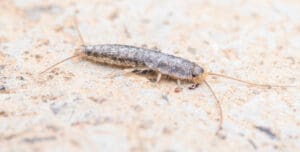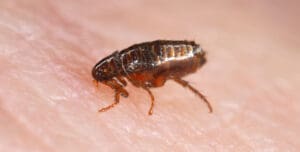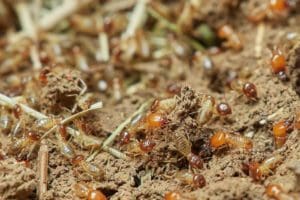
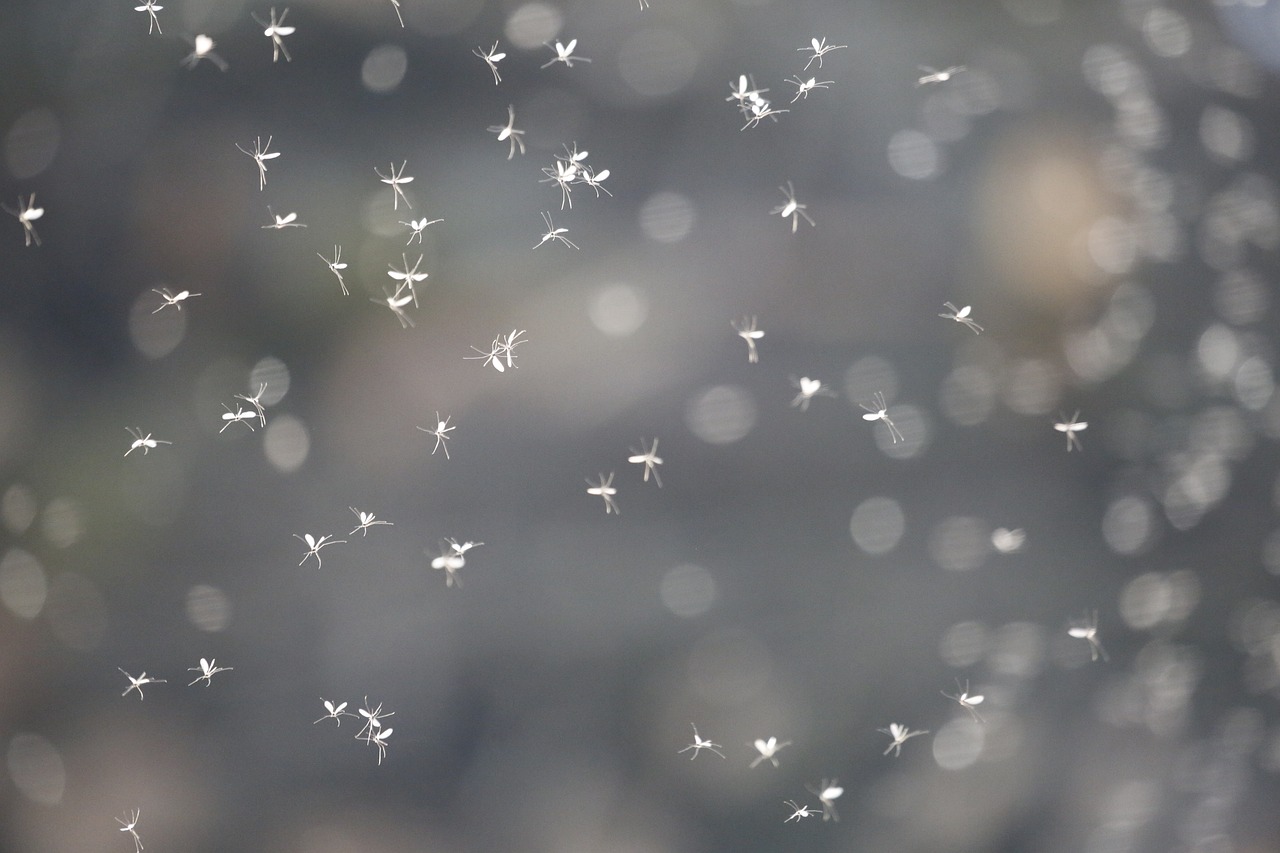
As the warmer months approach, so does the inevitable nuisance of pesky mosquitoes, but not to worry; with the right strategies and tools, you can reclaim your outdoor space and enjoy a mosquito-free environment all season long. In this article, we'll explore how to get rid of mosquitoes in the yard, from simple DIY techniques to professional pest control solutions. Say goodbye to itchy bites and outdoor discomfort as we dive into practical tips to keep your yard mosquito-free.

Why Mosquitoes Bite
Mosquitoes bite primarily to obtain the blood they need for reproduction. Female mosquitoes require the proteins and iron found in blood to develop their eggs. When a female mosquito bites, it uses its specialized mouthparts to pierce the skin and access blood vessels. This process involves injecting saliva, which contains anticoagulants to prevent blood clotting and enzymes to ease feeding. The immune response to these foreign substances often causes the itching and swelling associated with mosquito bites. Unlike females, male mosquitoes do not bite humans or animals; they feed on nectar and other plant juices. This blood-feeding behavior is crucial for the survival and reproduction of many mosquito species, making it an essential aspect of their lifecycle.Why Are There So Many Mosquitoes In My Yard?
The abundance of mosquitoes in your yard is likely due to several factors that create an ideal environment for them to thrive. Mosquitoes need stagnant water to lay their eggs, so any standing water, such as in birdbaths, clogged gutters, or flower pot saucers, provides breeding sites. Dense vegetation, tall grass, and shaded areas offer mosquitoes a cool, humid environment to rest during the day. Additionally, if your yard has plenty of flowering plants, it may attract mosquitoes seeking nectar for energy. Warm temperatures and high humidity also contribute to their proliferation. Human activity, such as watering lawns or gardens and using outdoor lighting, can further attract mosquitoes.What Smells Do Mosquitoes Hate?
Mosquitoes are repelled by certain smells, making these scents effective natural deterrents. One well-known repellent is citronella, derived from lemongrass, which masks the scents that attract mosquitoes. Essential oils from eucalyptus, particularly lemon eucalyptus, have proven to be highly effective due to their strong odor and chemical properties. Lavender is another scent mosquitoes dislike; its pleasant aroma to humans is off-putting to them. Peppermint oil not only deters mosquitoes but can also kill their larvae. Other scents that mosquitoes avoid include garlic, cloves, and rosemary. DEET, although synthetic, is a highly effective repellent due to its ability to interfere with mosquitoes' sensory receptors. Utilizing these scents in the form of sprays, candles, or plants can help reduce mosquito presence and bites, providing a more pleasant outdoor experience.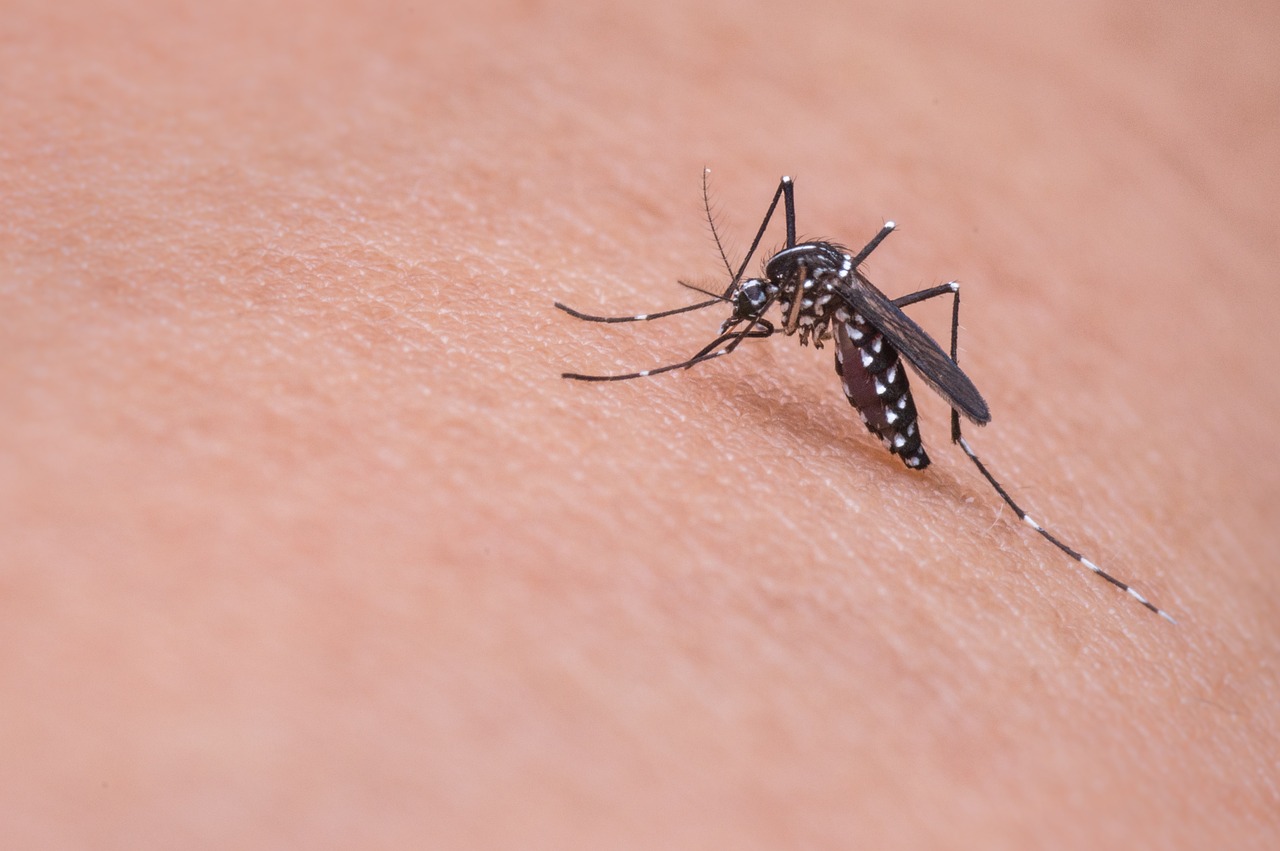
Preventing Mosquitoes
Addressing mosquito issues in your yard requires a multi-faceted approach, from eliminating breeding sites to utilizing effective repellents. Implementing these strategies can help significantly reduce mosquitoes in your yard, creating a more enjoyable outdoor environment:- Remove All Standing Water Eliminate any sources of standing water around your yard, such as puddles, birdbaths, and clogged gutters. Mosquitoes lay their eggs in stagnant water, so regularly emptying and cleaning these areas can significantly reduce their breeding sites and overall population.
- Set a Mosquito Trap Use mosquito traps that attract and capture mosquitoes. These traps often use a combination of light, heat, and CO2 to lure mosquitoes. Position them strategically around your yard, especially in shaded and humid areas where mosquitoes are most active.
- Plant Naturally-Repellent Foliage Incorporate plants like citronella, lavender, marigolds, and rosemary into your garden. These plants emit scents that mosquitoes find unpleasant, helping to create a natural barrier. Plant them near seating areas, doorways, and windows for added protection.
- Set Up a Fire Pit Use a fire pit to create smoke, which repels mosquitoes. Burning certain types of wood or adding herbs like sage and rosemary can enhance the effect. Place the fire pit in outdoor gathering areas to provide warmth and keep mosquitoes at bay during evening activities.
- Spray Repellent Apply mosquito repellents to your skin and clothing when spending time outdoors. Choose repellents containing DEET, picaridin, or oil of lemon eucalyptus for effective protection. Reapply as needed according to the product instructions to maintain a barrier against mosquito bites.
- Use Lemon Eucalyptus Oil Lemon eucalyptus oil is a natural and effective mosquito repellent. Apply it to exposed skin or use it in a diffuser outdoors. Its strong scent deters mosquitoes, providing a chemical-free option for those seeking an alternative to synthetic repellents.
- Bring Out a Fan Set up an oscillating fan in outdoor seating areas. Mosquitoes are weak fliers and struggle against the breeze created by a fan. This simple method not only cools the area but also significantly reduces the number of mosquitoes able to approach and bite.
- Declutter Your Yard Remove debris, leaves, and overgrown vegetation from your yard. These areas provide hiding spots and breeding grounds for mosquitoes. Regular maintenance, such as mowing the lawn and trimming bushes, reduces potential habitats and helps keep the mosquito population under control.
- Make a Plan with Your Neighbors Coordinate with neighbors to implement mosquito control measures collectively. Since mosquitoes can travel between yards, a neighborhood-wide effort can be more effective. Share strategies and resources to ensure everyone participates in eliminating breeding sites and using repellents.
- Call Your Local Mosquito Control Program Contact your local mosquito control program for professional assistance. These programs can provide additional resources, conduct inspections, and apply treatments in your area. Their expertise and equipment can help manage severe mosquito infestations more effectively than individual efforts.




